The 21st
LaureateArchitecture
Zaha Hadid
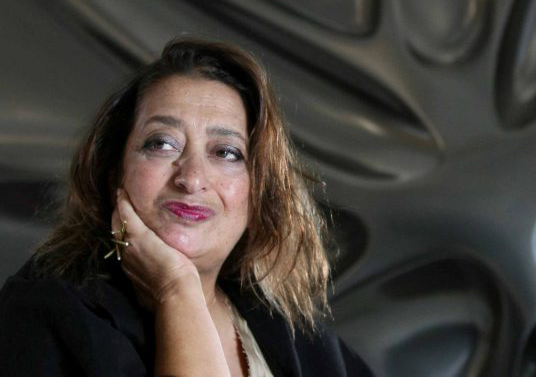
Zaha Hadid was born in Baghdad,Iraq and decided on a career in architecture at the age of 11. After studying architecture in London,she established her own practice there at the age of 30. In the past,she was said to be famous not for the buildings she had built,but for the ones she had not built. However,in recent years her original and idiosyncratic vision has brought her increasing recognition. She has gone from success to success with major projects,starting in 1994 with her first public commission,Vitra Fire Station in Germany. In 2004,she became the first woman awarded the Pritzker Prize,known as the Nobel for architecture. Hadid’s works are characterized by fluid,dynamic exteriors,interweaving geometric curves,straight lines and sharp angles. Her ongoing works include London Aquatics Centre for the 2012 Olympics and high-profile projects in the Middle East and Europe as well as in countries like China,Taiwan and Russia. She also designs furniture and interiors,and in Japan she made interior designs for a restaurant in Sapporo and a boutique in Tokyo.
Biography
In the past,Zaha Hadid was said to be famous not for the buildings she had built,but for the ones she had not built,a reputation brought on by avant-garde concepts and idiosyncratic designs that seemed to stand in the way of her project’s actual execution. Recent years,however,have seen a series of completion of major projects. The first female recipient of the Pritzker Prize,known as the Nobel for architecture,she is now perhaps the world’s most talked-about architect.
Hadid was born in Baghdad,Iraq,with a father active in business and politics. Looking back on her childhood,she says," Both my parents were very interested in arts,architecture and education. They allowed me to think free. Every summer we went on vacation to Europe or North America,and saw many great works of architecture there. By the age of eleven,I had an instinctive sense that I would be an architect."
After completing her studies at the Architectural Association in London,Hadid established her own practice there in 1980. She won the top prize in a design competition for the Peak in Hong Kong (1983),a project that was never built but,as she says,"It cemented a lot of the ideas which I had been working on for five years since I was a student." The groundbreaking design sent shock waves through the world of architecture.
The ensuing years saw further unrealized projects,including two planned buildings in Tokyo that fell victim to the collapse of Japan’s "bubble economy. "Nonetheless,Hadid persisted in designing buildings that defied common conventions,reflecting her own professed refusal to compromise.
Beginning with her first public commission in 1994,Vitra Fire Station (Germany),many major projects were completed in recent years,including Bergisel Ski-Jump (Austria); her first U.S. work,Rosenthal Center for Contemporary Art; Phaeno Science Center (Germany); the BMW Central Building (Germany); and her first UK building,Maggie’s Cancer Care Centre. Hadid has seen her original and idiosyncratic vision find acclaim and an ever-increasing number of clients.
Characterized by flowing,dynamic exteriors,and interweaving geometric curves,straight lines and sharp angles,Hadid’s works are highly abstract and fluid,while primarily employing concrete as a building material. Taken in their entirety,her buildings constitute a window into a fantastic landscape.
Her ongoing works include London Aquatics Centre for the 2012 Olympics and high-profile projects in the Middle East and Europe as well as in countries like China,Taiwan and Russia. Housed in an old renovated building that was once a school,her London studio,operated in conjunction with partner Patrik Schumacher,employs a staff of 250.
Hadid also designs furniture and interiors. In Japan she made interior designs for a restaurant in Sapporo and a boutique in Tokyo.
Chronology
Became a partner of the Office for Metropolitan Architecture
Competition winner,Cardiff Bay Opera House,Wales
Competition winner,MAXXI: National Museum of XXI Century Arts ,Rome
Mies van der Rohe Award for Honheim-Nord Terminus,Strasbourg,France (2001)
Commission for London Aquatic Centre (-2012)
The BMW Central Building,Leipzig,Germany
Member of the Royal Academy of Arts
Zaha Hadid Exhibition,Guggenheim,New York
-
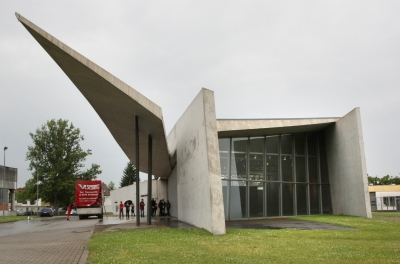
Vitra Fire Station
-
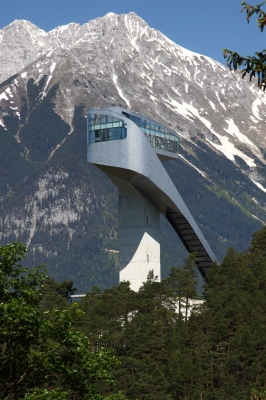
Bergisel Ski Jump
-
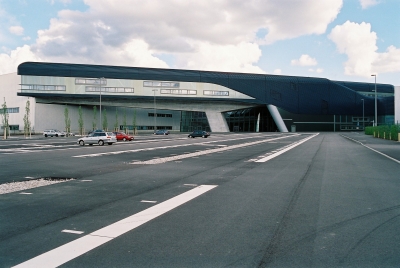
BMW Central Building
-
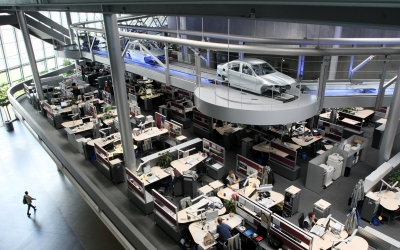
BMW Central Building (Inside)
-
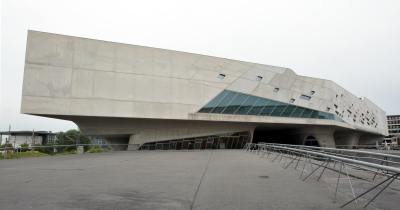
Phaeno Science Center
-
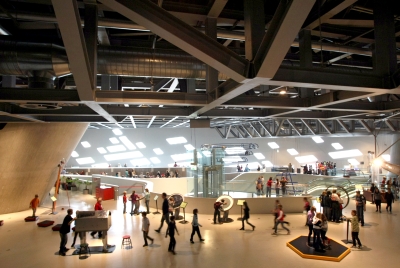
Phaeno Science Center (Inside)
-
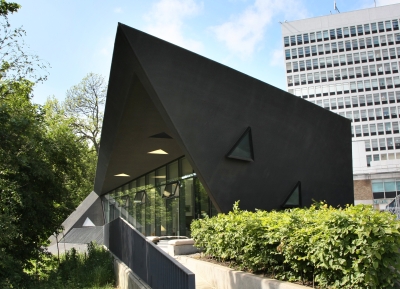
Maggie's Cancer Care Centre

